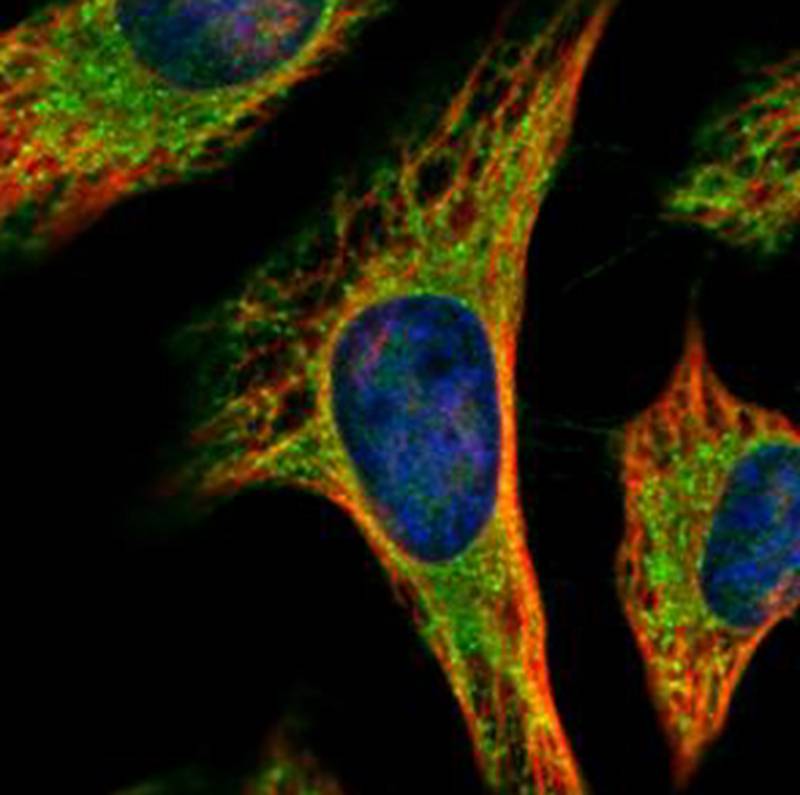Product Detail
Product NamePEX19 antibody
Host SpeciesRabbit
ClonalityPolyclonal
PurificationPurified by antigen-affinity chromatography.
ApplicationsWB IHC IF
Species ReactivityHu
Immunogen TypeRecombinant protein
Immunogen DescRecombinant protein fragment contain a sequence corresponding to a region within amino acids 1 and 269 of PEX19
Target NamePEX19
ConjugateUnconjugated
Accession NoSwiss-Prot:P40855
Gene ID:5824
Uniprot
P40855
Gene ID
5824;
Concentration1mg/ml
FormulationSupplied in 0.1M Tris-buffered saline with 10% Glycerol (pH7.0). 0.01% Thimerosal was added as a preservative.
StorageStore at -20˚C for long term preservation (recommended). Store at 4˚C for short term use.
Application Details
Predicted MW: 33kd
Western blotting: 1:500-1:3000
Immunohistochemistry: 1:100-1:500
Immunofluorescence: 1:100-1:200
Sample (30 ug of whole cell lysate)
A: Raji
B: K562
C: THP-1
D: NCI-H929
12% SDS PAGE
Primary antibody diluted at 1: 10000
Immunohistochemical analysis of paraffin-embedded SW480 xenograft, using PEX19 antibody at 1: 500 dilution.
Confocal immunofluorescence analysis (Olympus FV10i) of methanol-fixed HeLa, using PEX19 antibody (Green) at 1: 500 dilution and alpha-tubulin antibody (Red) at 1: 2000.
This gene is necessary for early peroxisomal biogenesis. It acts both as a cytosolic chaperone and as an import receptor for peroxisomal membrane proteins (PMPs). Peroxins (PEXs) are proteins that are essential for the assembly of functional peroxisomes. The peroxisome biogenesis disorders (PBDs) are a group of genetically heterogeneous autosomal recessive, lethal diseases characterized by multiple defects in peroxisome function. The peroxisomal biogenesis disorders are a heterogeneous group with at least 14 complementation groups and with more than 1 phenotype being observed in cases falling into particular complementation groups. Although the clinical features of PBD patients vary, cells from all PBD patients exhibit a defect in the import of one or more classes of peroxisomal matrix proteins into the organelle. Defects in this gene are a cause Zellweger syndrome (ZWS). [provided by RefSeq]
If you have published an article using product 22022, please notify us so that we can cite your literature.





 Yes
Yes



